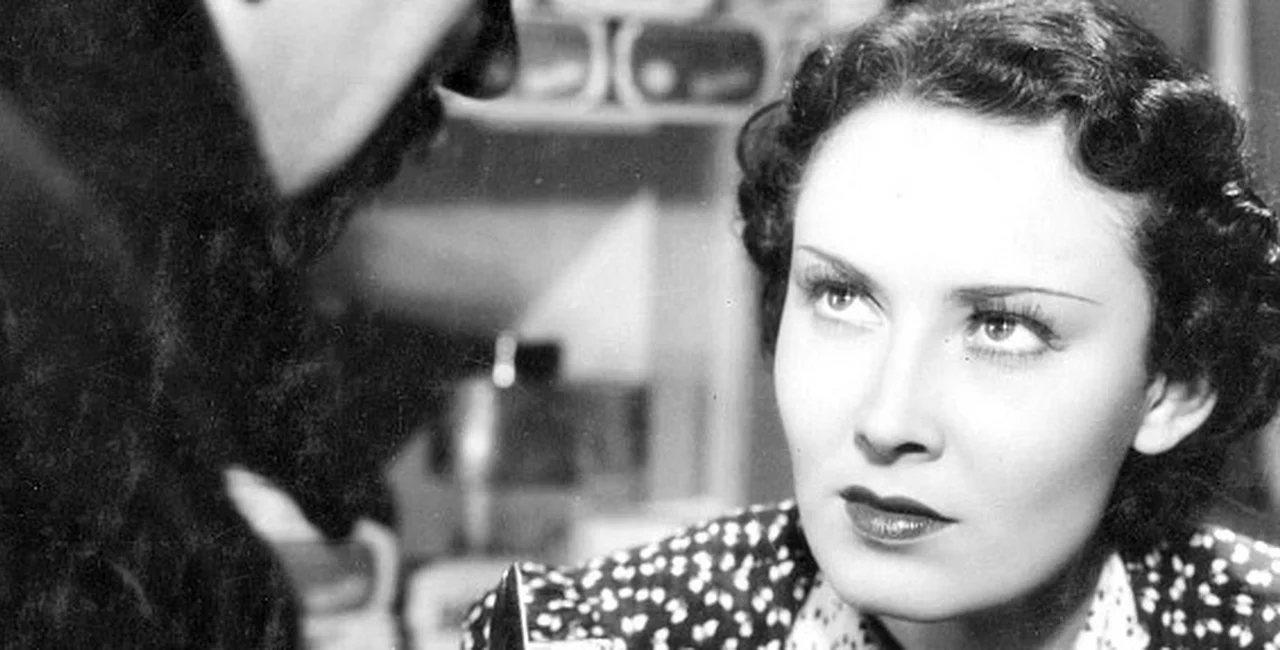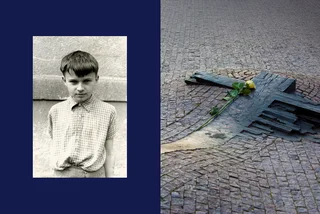Ever had the chance to see Hugo Haas on the big screen? How about Lída Baarová? Or the classic films from director Martin Frič? Casual film fans will be familiar with Miloš Forman and the other big names from the Czech New Wave in the late 1960s, but the former Czechoslovakia has a rich cinematic history that has been largely undiscovered by foreign audiences.
Each month, the National Film Archive presents a diverse schedule of classic films – both Czech and treasures from around the world – at their Ponrepo cinema in Prague on Bartolomějská, with two screenings daily (usually at 17:30 and 20:00).
If you haven’t been to Ponrepo, I can’t recommend it highly enough: recently refurbished with first-rate projection standards (considering available print elements), it is the place to be for cinephiles living in Prague.
Recent highlights for me have included a pristine copy of the Harvey Keitel-Johnny Rotten drama Copkiller (which only exists in the home video market in a grotty VHS transfer) and a screening of the 1921 version of The Three Musketeers with live piano accompaniment (and I’ll never forget a two-day marathon of Rainer Werner Fassbinder’s sixteen-hour Berlin Alexanderplatz at Ponrepo a decade ago).
Bonus: tickets to most films can be had at the bargain-basement price of 60 CZK.
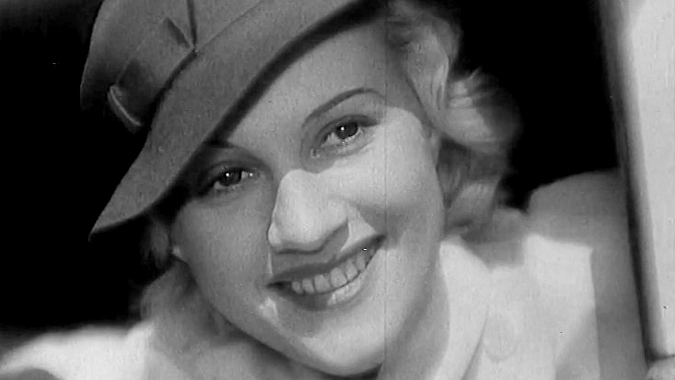
Život je pes (Martin Frič, 1933)
For English-speaking audiences, the one letdown is that prints of Czech and foreign-language films will typically not be English-friendly. But over the next four months, the NFA has selected an eclectic mix of Czech classics that will screen with English subtitles every Tuesday at 17:30.
Scroll down below for the full schedule, or click here for a PDF with more information on each film.
These aren’t the films that students of Czech cinema typically learn about; only Forman’s Loves of a Blonde and Karel Kachyna’s The Ear are prototypical Czech New Wave classics (and both are must-sees, by the way).
Instead, English-speaking audiences have the rare opportunity to see some less-celebrated Czech classics from the 1920s up through 1990 with English subtitles up on the big screen. The fall schedule kicks off on September 23 with a screening of Karel Lamač’s silent drama Bílý ráj, starring Lamač’s then-wife Anny Ondráková, who went on to star in Alfred Hitchcock’s early features a few years later.
Highlights from the next few months include two films from director Martin Frič, one of the most celebrated Czech filmmakers from the 1930s-50s (his romance classic Kristian is a personal favorite). 1933’s Život je pes (Life is a Dog), a comedy starring Hugo Haas, will screen on September 30, and 1958’s Dnes naposled (Today for the Last Time) hits on November 18.
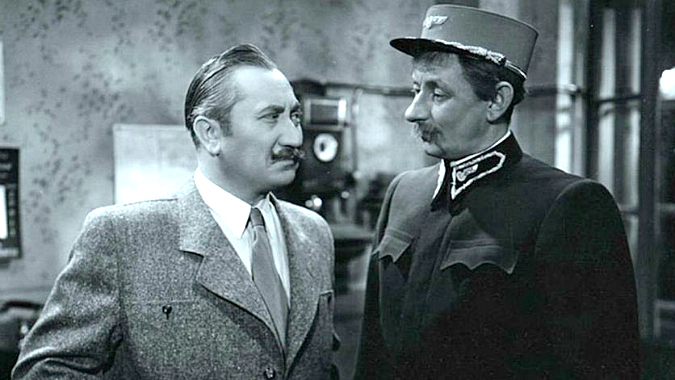
Přednosta stanice (Jan Sviták, 1941)
The legendary Lída Baarová was one of the most beautiful actresses of the 1930s – or any other generation. You can see her in one of her most memorable roles in Otakar Vávra’s Panenství (Virginity), screening on October 7. A few years after this 1937 film, Baarová’s career was effectively over after an affair with Nazi propaganda minister Joseph Goebbels.
Another highlight will be the 1955 propaganda classic Rudá záře nad Kladnem (The Red Glow over Kladno), a socialist manifesto that can be likened to a Czech version of Battleship Potemkin; it doesn’t have the cinematic respect of Eisenstein’s film, however, with a 21% rating at ČSFD. You can catch it on October 21.
The wildly inventive Oldřich Lipský (Lemonade Joe, The Mysterious Castle in the Carpathians) might be my favorite Czech director. His Happy End – which predates Memento and Irreversible by three decades – is not only told in reverse-chronological order, but actually plays out entirely backwards; it must be seen to be fully appreciated. Happy End screens on December 9.
All this, and much more. Czech film lovers take note: you may not get another chance to catch many of the following films on the big screen again. Here’s the full schedule:
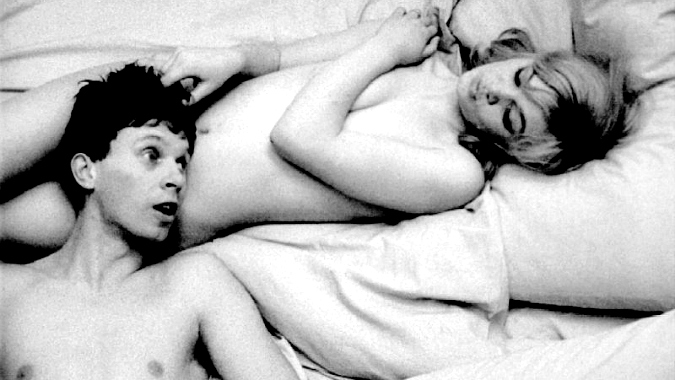
Loves of a Blonde (Miloš Forman, 1965)
September 23:
Bílý ráj (White Paradise, 1924)
September 30:
Život je pes (Life is a Dog, 1933)
October 7:
Panenství (Virginity, 1937)
+ the short avant-garde film Světlo proniká tmou (The Light Penetrates the Dark)
October 14:
Přednosta stanice (Station Master, 1941)
October 21:
Rudá záře nad Kladnem (The Red Glow over Kladno, 1955)
November 11:
Zde jsou lvi (Scars of the Past, 1958)
November 18:
Dnes naposled (Today for the Last Time, 1958)
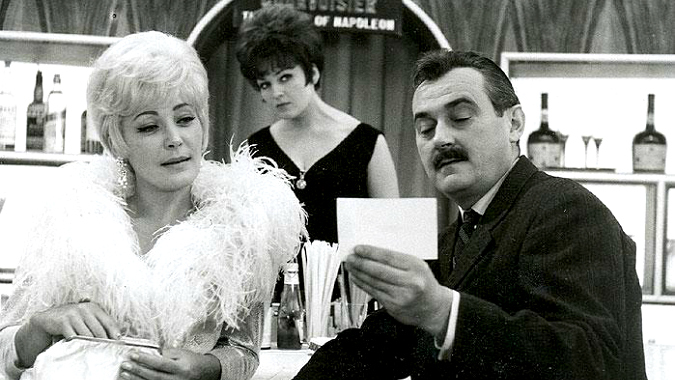
The End of the Agent W4C (Václav Vorlíček, 1967)
November 25:
Konec agenta W4C prostřednictvím psa pana Foustky (The End of the Agent W4C, 1967)
December 2:
Lásky jedné plavovlásky (Loves of a Blonde, 1965)
December 9:
Happy End (1967)
December 16:
Ďábelské líbánky (Devilish Honeymoon, 1970)
January 6:
Ucho (The Ear, 1970)
January 13:
Stíny horkého léta (Shadows of a Hot Summer, 1977)
January 20:
Stíhán a podezřelý (Prosecuted and Suspect, 1978)
January 27:
Tichá bolest (Silent Pain, 1990)












 Reading time: 4 minutes
Reading time: 4 minutes 